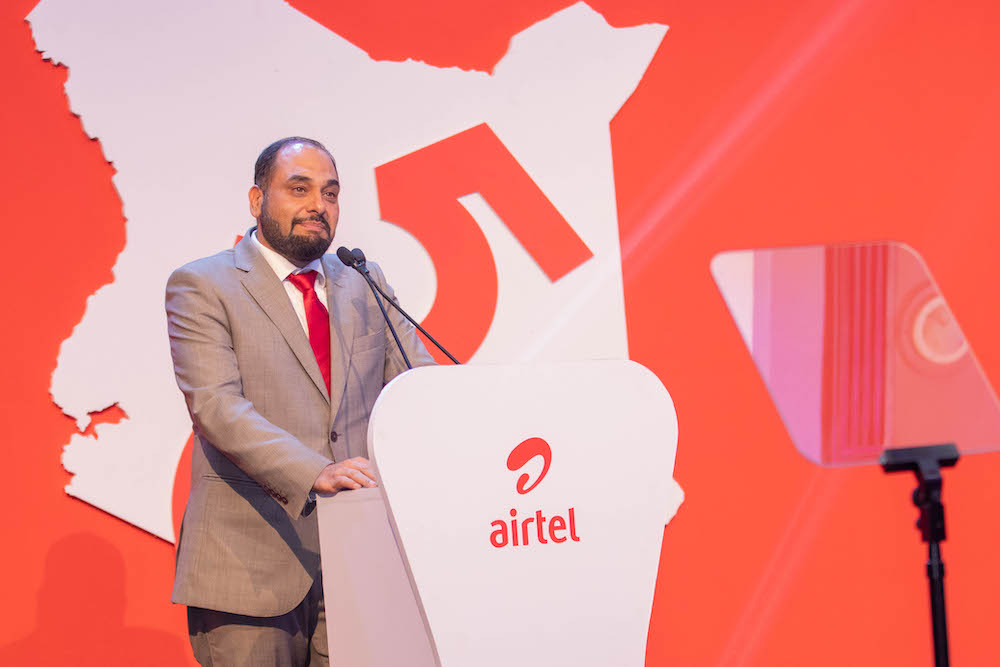High cost of 5G smartphones hindering 5G adoption, says Airtel Kenya MD

Kenya has joined several other African countries that continue to roll out 5G. As of now, two of the country’s operators Safaricom and Airtel have rolled out the service.
Safaricom went live with the network in October of last year followed by Airtel who launched the service in July this year. At the launch, Airtel said that over 370 of its 5G sites are now live in 16 counties and 180 wards nationwide. As of April, Safaricom also revealed that it has increased its 5G coverage to 28 towns across 21 counties in the country.
Even as 5G continues to expand across different parts of the country, one thing remains a challenge – the high cost of 5G smartphones. Safaricom had previously noted that this was one of the major factors that had slowed down the deployment of its 5G networks and sites.
Last year, the average cost of a 5G-enabled phone was between KES 80,000 and KESH100,000. This year though, we have seen companies like Nokia, OPPO, Infinix and even Samsung bringing in cheaper 5G devices below the KES 35,000 mark, which is still expensive for the common consumer. When Safaricom went live, CEO Peter Ndegwa noted that there has to be a considerable mass of 5G-enabled handsets before rolling out more 5G sites for the consumer market.
In an interview with TechTrends Media, Airtel Kenya Managing Director Mr Ashish Malhotra shared the same sentiments noting that the high price of 5G-enabled phones is indeed a challenge when it comes to 5G adoption in Kenya.
‘’5G devices are quite expensive; thus, our market reach is still limited,’’ he said.
According to IDC, 5G devices accounted for 7.6% of smartphone shipments (although it grew slightly from the previous quarter) into Africa in the second quarter of last year, which is extremely low when compared to 3G and 4G devices, which accounted for 18.5% and 73.9%, respectively. Another report by Ericsson notes that 5G smartphones are expected to account for 62 per cent of all smartphones shipped in 2023. What this means is that this year, the number of 5G smartphone shipments is expected to go higher, but will that increase 5G adoption?
Ashish believes that as more telcos continue to roll out 5G, more customers will purchase 5G devices.
‘’It was the same story as during the launch of 4G; initially, the devices were expensive, and the penetration was low, but as the network expanded, people came to know more about the technology and adopted it. I’m sure with time, the 5G technology will be adopted quickly. However, there are various 5G-enabled devices currently retailing at customer-friendly prices (comparable to 4G-enabled (Non 5G) devices), which will enhance 5G Mobile uptake,‘’ he added.
Ashish notes that with their 5G launch, Airtel Kenya is looking at penetrating areas that lack fibre connection.
‘’Our brand promise is to continuously expand our network, ensuring that every Kenyan can partake in the remarkable benefits that 5G has to offer,’’ he said.
Airtel Kenya currently offers 5G Home BroadBand for Enterprise and SME Unlimited Packages for as low as Ksh 3,500 per month. The 5G packages include 5G Unlimited 10Mbps at Ksh 3,500, 5G Unlimited 30Mbps at Ksh 5,500 and 5G Unlimited 50 Mbps at Ksh7,500 per month, respectively. There are also volume-based data plans for individual homes available from Ksh 2,999.
The telco says customers who have 5G compatible 5G devices can still use their current 4G bundles. Mr Malhotra told TechTrends Media that they are not launching mobile plans because the network is in the zones. ”We are first using this as a home broadband strategy for the time being.”
For the 5G routers, Airtel has a segmented approach. For SMEs and enterprises, the company is offering routers for free while individual customers have to purchase them for Ksh.9,999.
Follow us on Telegram, Twitter, and Facebook, or subscribe to our weekly newsletter to ensure you don’t miss out on any future updates. Send tips to editor@techtrendske.co.ke


